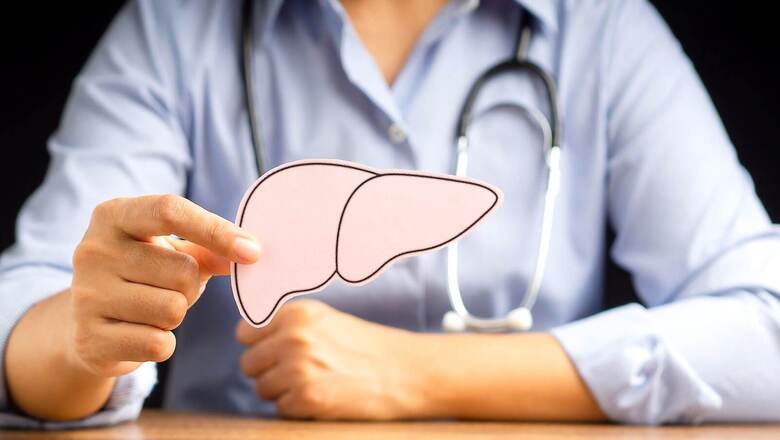
views
Autoimmune diseases occur when the body’s defence system cannot differentiate between healthy and foreign cells. It causes the body to mistakenly attack healthy cells of the body giving rise to a series of problems. Now, autoimmune liver diseases happen when the body’s immune system attacks the liver causing inflammation and scarring. When untreated it can leave the organ permanently damaged and lead to liver cancer or failure. Here’s everything that you need to know about the warning signs, types, and treatment required for autoimmune liver diseases.
Types of autoimmune liver diseases
Autoimmune hepatitis
Autoimmune hepatitis is a medical condition when the healthy tissue of the liver becomes acutely inflamed. When left untreated, this disease may advance to scarring of the part also known as cirrhosis. If the liver is severely damaged, it ultimately leads to organ failure. They are two types of autoimmune hepatitis: Type 1 can affect all especially women. Type 2 majorly occurs in children.
Primary biliary cholangitis (PBC)
Primary biliary cholangitis (PBC) hampers the ability of the liver to function. It is chronic and progressive which means it gets worse with time leading to scarring and even organ failure. The disease causes injury to the bile duct of the liver, the small tube that carries bile juice necessary for the digestion of food. The injured ducts soon become inflamed and eventually are permanently damaged.
Primary sclerosing cholangitis (PSC)
Primary sclerosing cholangitis (PSC) is also a problem related to the bile duct in the liver. It is a chronic inflammation that causes scarring or sclerosis, making the ducts narrow down. This restricts the flow of bile and the juice then returns back to the liver causing progressive damage to the organ.
Warning signs
- Fatigue
- Abdominal discomfort
- Yellowing of the skin and whites of the eyes (jaundice)
- An enlarged liver
- Abnormal blood vessels on the skin (spider angiomas)
- Skin rashes
- Joint pains
- Swollen feet and ankles (edema)
- High cholesterol
- Weight loss
- Treatment
The treatment for autoimmune liver differs in individual cases. One must seek immediate medical attention when suffering from any of the warning signs.
Liver transplant: When medication doesn’t tend to help and the autoimmune disease has ruptured the functioning of the organ, medical practitioners can recommend undergoing a liver transplant.
Medications: The symptoms are initially managed by Immunosuppressant drugs or Corticosteroid medication to salvage the damage and scarring.
Lifestyle changes: Positive lifestyle changes are recommended including quitting alcohol and tobacco. Regular exercise and maintaining a healthy weight are advised.
Read all the Latest Lifestyle News here


















Comments
0 comment